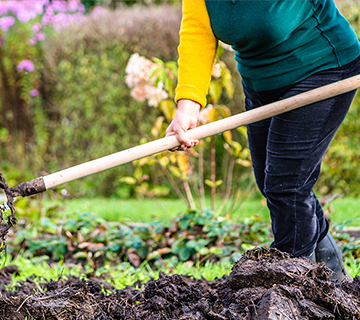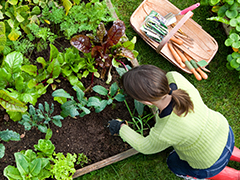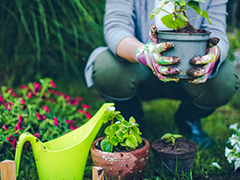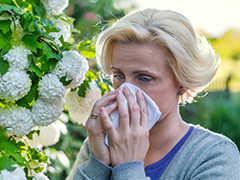How to Compost at Home

To many, “being green” simply involves turning off lights and making sure not to run the water while brushing their teeth. Though both of these things are good for the environment (and your wallet), sometimes the urge to do more takes over. So, what other small-scale, green activity can you do at home? Try composting—it’s an eco-friendly way to put your organic waste to good use in your yard. Plus, it’s an easy way to turn would-be trash into nutrient-rich resources, which saves you even more money in the long-run.
How does it work? Composting involves placing organic waste into a pile, where bacteria and other microorganisms break it down and turn it into fertilizer. It costs less than typical disposal methods, improves your soil and saves precious space in landfills. We’ll show you how to compost at home so you can reap the benefits for your garden or lawn year-round.
Ingredients
Efficient composting involves three major ingredient groups: browns, greens and water. Browns (dead leaves, branches and twigs) supply the carbon. Greens (grass clippings, vegetable waste and fruit scraps) supply the nitrogen. Water is the moisturizer that allows the organic products in the pile to be broken down.
Location
Where you place your compost is important. Try to find a dry, shady area, ideally next to a water source, like a hose. If you plan on disposing of food waste, you may want to purchase a compost bin to deter animals and pests from getting at it. You can also compost indoors, using an indoor compost bin.
Process
Add your browns and greens first, making sure to break down or shred the larger pieces. As you add more to the pile, douse it with water so that the pile is damp all the way through. Once you have a decent-sized pile, wait it out. It may take months or even years before it’s ready to use—you’ll know when the bottom layers are dark, crumbly and richly colored. Turning the materials in your pile every couple of weeks can speed this process.
Materials to avoid
There are certain things you should avoid while composting, as they can have negative effects on your yard if used as fertilizer. Avoid black walnut leaves, dairy products, diseased plants, meat bones or scraps, fatty foods, pet wastes and chemically-treated yard trimmings.


